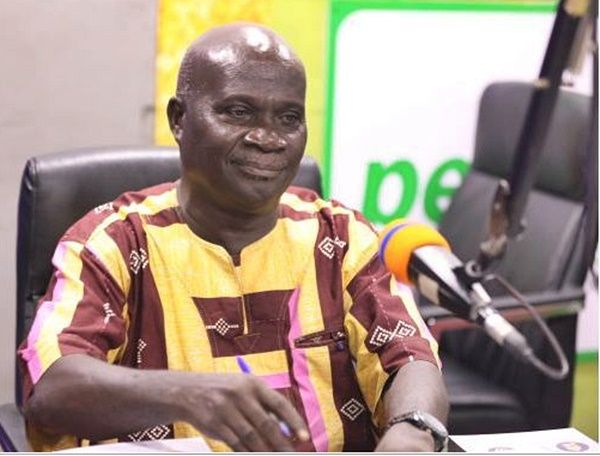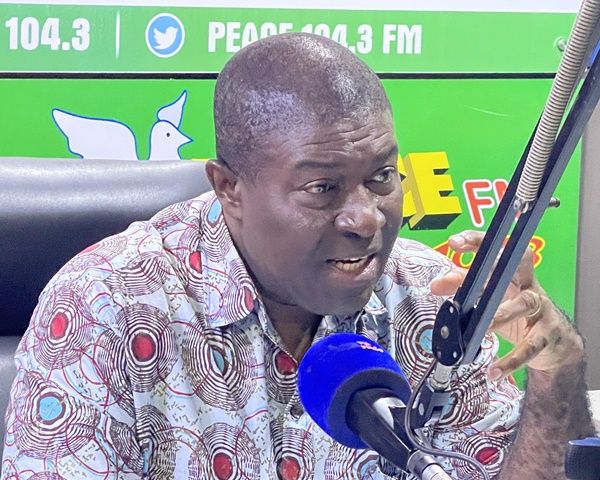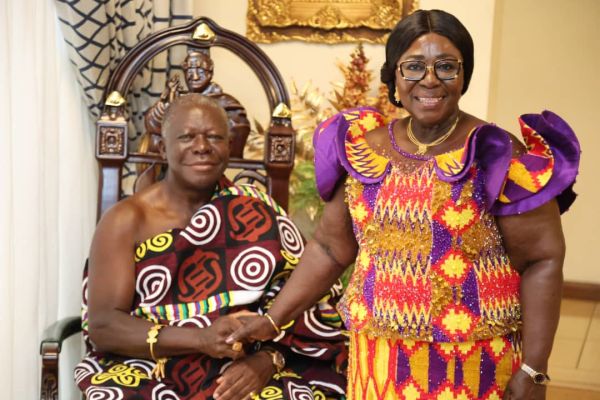
The Supreme Court has unanimously dismissed the National Democratic Congress (NDC) case against the Electoral Commission to compile a new voters register for the 2020 General Elections
The 7-member panel presided over by Chief Justice Kwasi Anin-Yeboah, in its decision held that the EC is an independent body and will only be directed by the court if it acts contrary to law.
The seven member panel that heard the case included Justices Jones Dotse, Paul Baffoe Bonnie, Sule Gbagegbe, Samuel K. Marful-Sau, Nene Amegatcher, and Professor Ashie Kotey.
Peacefmonline.com sources say NDC General Secretary Johnson Asiedu Nketia later told pressmen that the court had ruled in the party’s favour by calling for the inclusion of the existing voter ID card as one of the source documents for registration during the upcoming voter's registration exercise.
It would be recalled that two groups, the opposition NDC and a Private citizen Mark Takyi-Banson filed the case asking the apex court to stop the EC from compiling the register or allow the use of the birth certificate and voters ID card by prospective voters as proof of identification.
Thursday Ruling
The Apex Court thus fixed today (Thursday) to deliver its judgement on whether or not the Electoral Commission’s (EC’s) decision to exclude the existing voter ID card as one of the source documents for registration during the upcoming voter's registration exercise is Constitutional.
The Supreme Court granted only two reliefs sought by the NDC which had nothing to do with the inclusion of the use of an existing voter ID card as source documents and dismissed all the other reliefs. The apex Court further ordered that the compilation of the new register should be in compliance with C.I 126.
Granted reliefs
b. A declaration that upon a true and proper interpretation of the provisions of the Constitution, specifically article 51 read conjointly with article 42 of the Constitution, the power of the 2nd Defendant to compile and review the voters’ register must be exercised subject to respect for and the protection of the right to vote;
c. A declaration that, upon a true and proper interpretation of the provisions of the Constitution, particularly article 42, upon the registration of and issuance of a voter identification card to a person, that person has an accrued right to vote which cannot be divested in an arbitrary and capricious manner;
Dismissed reliefs
d. A declaration that, upon a true and proper interpretation of the provisions of the Constitution, particularly Article 42 of the Constitution, all existing voter identification cards duly issued by the 2nd Defendant to registered voters are valid for purposes of identifying such persons in the exercise of their right to vote;
e. A declaration that upon a true and proper interpretation of the Constitution, specifically Article 42, the 2nd Defendant’s purported amendment of Regulation 1 sub-regulation 3 of the Public Elections (Registration of Voters) Regulations, 2016 (C.I 91) through the Public Elections (Registration of Voters)(Amendment) Regulations, 2020 to exclude existing voter identification cards as proof of identification to enable a person apply for registration as a voter is unconstitutional, null and void and of no effect whatsoever;
f. A declaration that the 2nd Defendant, in purporting to exercise its powers pursuant to article 51 of the 1992 Constitution to exclude the existing voter identification cards from the documents required as of identification to enable a person register as a voter without any legal basis or justification is arbitrary, capricious and contrary to article 296 of the 1992 Constitution;
g. A declaration that upon a true and proper interpretation of the Constitution specifically Article 42 of the 1992 Constitution, proof of identification for registration as a voter should not be limited by the provisions of Public Elections (Registration of Voters)(Amendment) Regulations, 2020;
h. An order directed at the 2nd Defendant to include all existing voter identification cards duly issued by the 2nd Defendant as one of the documents serving as proof of identification for registration as a voter for the purposes of public elections;
Cases against EC

In March this year, the NDC filed a suit against the EC and the (A-G) on two grounds that first, the entire registration exercise was unconstitutional because per Article 45 (a) of the 1992 Constitution, the EC could only compile a voters' register once and periodically revise it.
The second leg of the suit was that the decision of the EC to exclude an existing voter ID card as a form of identification for the registration would disenfranchise many potential registrants and, therefore, it was unconstitutional as it violated Article 42 of the 1992 Constitution, which gave a citizen of Ghana the right to vote and also the right to register to vote.
On June 11, this year, lawyers for the biggest opposition party abandoned the first leg of its case, the one challenging the constitutionality of the decision by the EC to compile a new voters register for the 2020 general election after the Supreme Court had pointed out to the lawyers of the NDC that the two claims could not stand side by side.
Second suit
On June 12, this year, Mr Mark Takyi-Banson instituted a different suit at the apex court in relation to the EC’s decision to use the Ghana Card and the Ghanaian passport as the only identification documents for the upcoming mass voters registration exercise.
In his writ filed against the EC and the A-G, Mr Takyi-Benson is seeking an order directed at the EC to include a birth certificate and the existing voters ID card as evidence of identification in the upcoming mass voter registration exercise.
The plaintiff is also seeking a declaration that upon a true and proper interpretation of Article 45, the register of voters for the conduct and supervision of all public elections and referenda of the 1992 Constitution, the EC’s constitutional and statutory mandate to compile is spent, saving only the power reserved in the commission to revise and expand the register at such periods as may be determined by law.
Amicus brief
Per the amicus brief, the CSOs sought to offer knowledge regarding the case that will eventually have a bearing on the case.
Counsel for the CSOs, Mr Joe Aboagye Debrah took his turn at the court to make his submissions regarding the application for the amicus brief.
In the course of making his submission, the Chief Justice questioned the lawyer on whether he had taken a look at the substantive processes regarding the two cases.
In response, Mr Debrah told the court he had not read it but had only seen the affidavit.
The Chief Justice further asked how he (Mr Debrah) could contribute to the case with his application since he had not taken a look at the substantive processes in the suits.
A member of the panel, Justice Paul Baffoe-Bonney acknowledged the role of the CSOs in the country but argued that as a result of all the issues being raised by the CSOs, it would have been better if the CSO’s had joined one of the parties in the case rather than filing a motion for amicus brief.
Application opposed
A Deputy Attorney General (A-G) Mr Godfred Yeboah Dame and lawyer for the EC opposed the application.
Not Neutral
At the hearing on Wednesday, the seven-member panel of the Apex court, presided over by the Chief Justice dismissed an amicus brief application filed by lawyers of four civil society Organisations (CSOs) including, policy think tank, IMANI Africa and the Alliance for Social Equity and Public Accountability (ASEPA).
The others include the Policy Innovation Alliance for Social Equity and the Conservative Policy Research Centre and Institute for Liberty.
Upon listening to the submissions, the Chief Justice, Justice Anin Yeboah dismissed the application stating that it was not supported by law.











